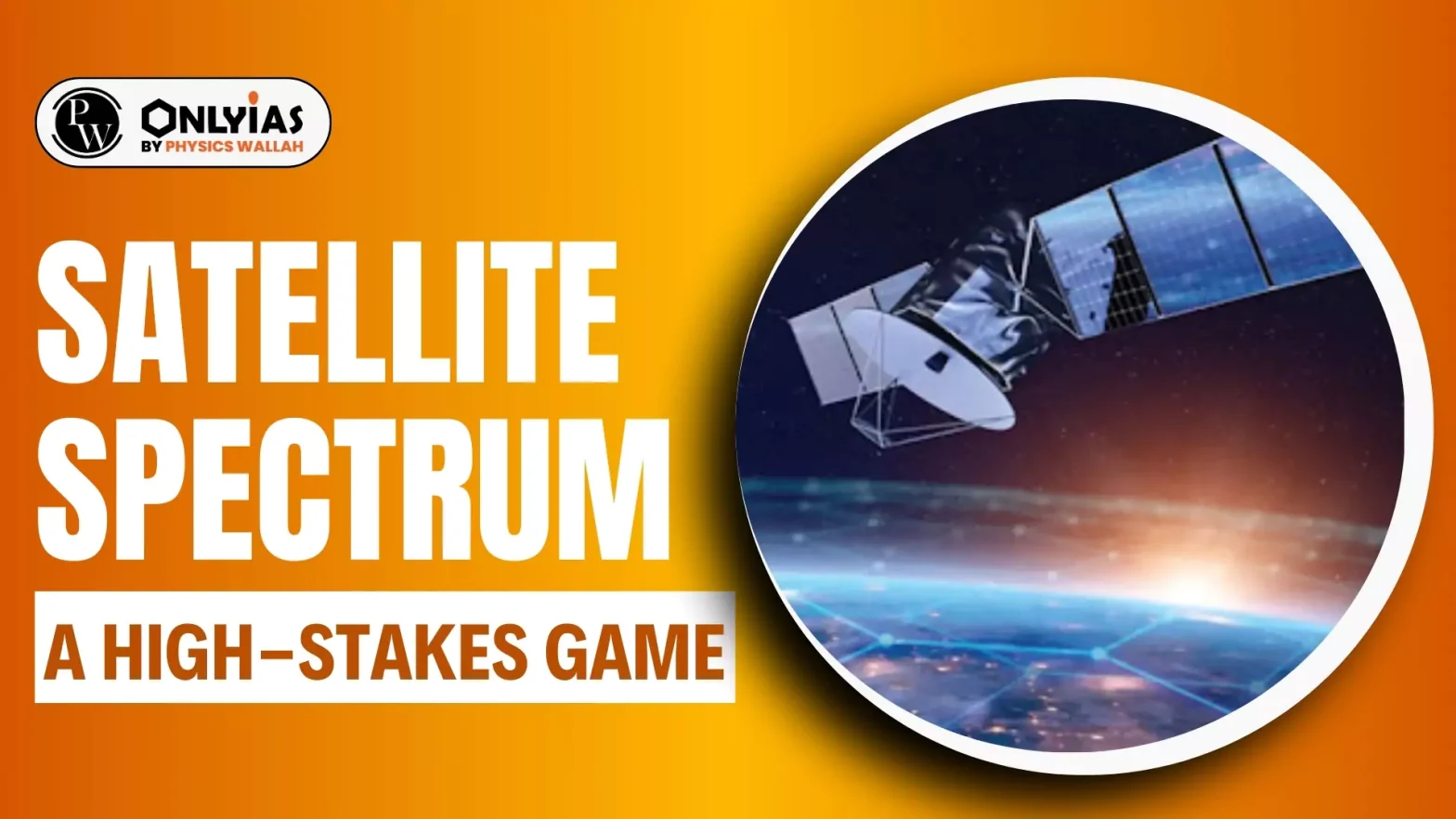The satellite spectrum debate in India centres on whether to auction or administratively allocate spectrum. Recently, the Indian government decided to allocate satellite broadband spectrum administratively, aligning with international practices.
Stakeholder Positions
- Reliance Jio’s Argument: Recently, Reliance Jio submitted a letter to the Department of Telecommunications and the Telecom Regulatory Authority of India, advocating for the auctioning of the spectrum.
- Elon Musk’s Response: Elon Musk, the owner of Starlink, expressed his concerns stating that auctioning the spectrum would be unprecedented since the International Telecommunication Union (ITU) has designated this spectrum as shared for satellite use.
- He emphasised that the satellite spectrum has “no national territorial limits.”
- Sunil Mittal’s Perspective: Sunil Mittal, chairperson of Bharti Enterprises and a stakeholder in OneWeb, argued that companies servicing retail customers should purchase spectrum and adhere to the same conditions as telecom operators.
Enroll now for UPSC Online Course
Government’s Decision
To bring clarity to the situation, the Minister of Communications, announced that the spectrum for satellite communications would be allocated administratively. This decision aligns with global practices and has been welcomed by industry experts.
How Satellite Internet Works?
Satellite internet is a wireless method of accessing the internet that utilises satellites to transmit data between a ground-based station and a satellite dish at your home or business.
Key Components
- Satellite Deployment: Satellites are typically placed in Low Earth Orbit (LEO), with examples including Starlink and OneWeb.
- Signal Transmission: An Internet Service Provider (ISP) sends a signal to the satellite in space.
- Signal Reception: A satellite dish on Earth captures the transmitted signal.
- Modem Connection: The dish is connected to a modem, which converts the satellite signal into a format that our devices can understand.
- Router Distribution: A router then distributes the internet signal throughout our home or business.
Advantages
- Accessibility: Satellite internet is an excellent option for remote or rural areas where other types of internet services may not be available.
- Flexibility: It can be used in temporary locations such as construction sites or emergency shelters, as well as on moving objects like ships, trains, and aircraft.
Check Out UPSC CSE Books From PW Store
Government Concerns Regarding Satellite Internet
- Regulatory Framework: A comprehensive regulatory framework is essential for managing spectrum allocation, setting operational standards, and ensuring compliance with international guidelines.
- National Security: Safeguarding sensitive data and infrastructure from potential cyber threats is crucial, as satellite communications can be vulnerable to interception.
Regulatory Framework in India
- Telecommunications Act 2023: This act empowers the government to assign spectrum for various services, including satellite-based communications, through an administrative process.
- Consultation Paper: In September, the Telecom Regulatory Authority of India (TRAI) released a consultation paper addressing critical issues such as frequency bands, rollout obligations, spectrum charges, and efficient spectrum usage.
Future Outlook
- Market Growth Potential: According to Deloitte, India’s satellite broadband service market is projected to reach $1.9 billion by 2030, highlighting the significant stakes involved.
- Need for Clarity: TRAI should provide clear guidelines on spectrum charges and allocation to foster a competitive environment.
- Focus on Healthy Competition: The objective should be to nurture a vibrant satellite communication industry characterised by healthy competition, rather than creating barriers to entry.
- Balanced Approach: Ensure growth without erecting entry barriers for new players and prevent monopolistic practices by a few dominant providers.
Enroll now for UPSC Online Classes
Conclusion
As the satellite communication sector evolves, addressing the spectrum allocation process and regulatory frameworks is crucial for fostering a competitive landscape and ensuring the industry’s growth potential.
![]() 19 Oct 2024
19 Oct 2024
